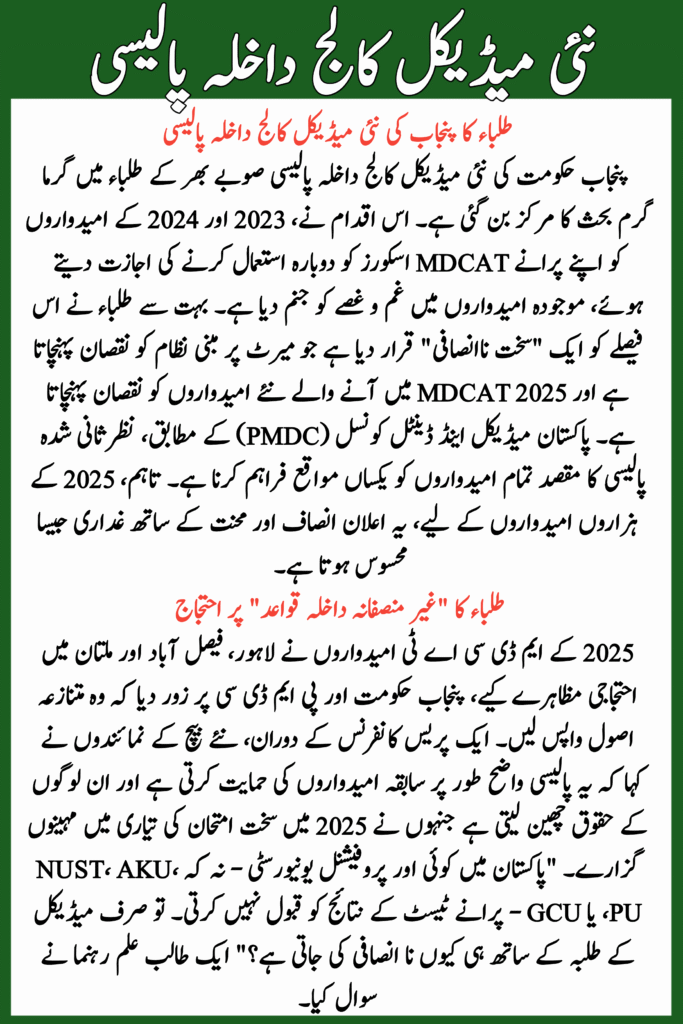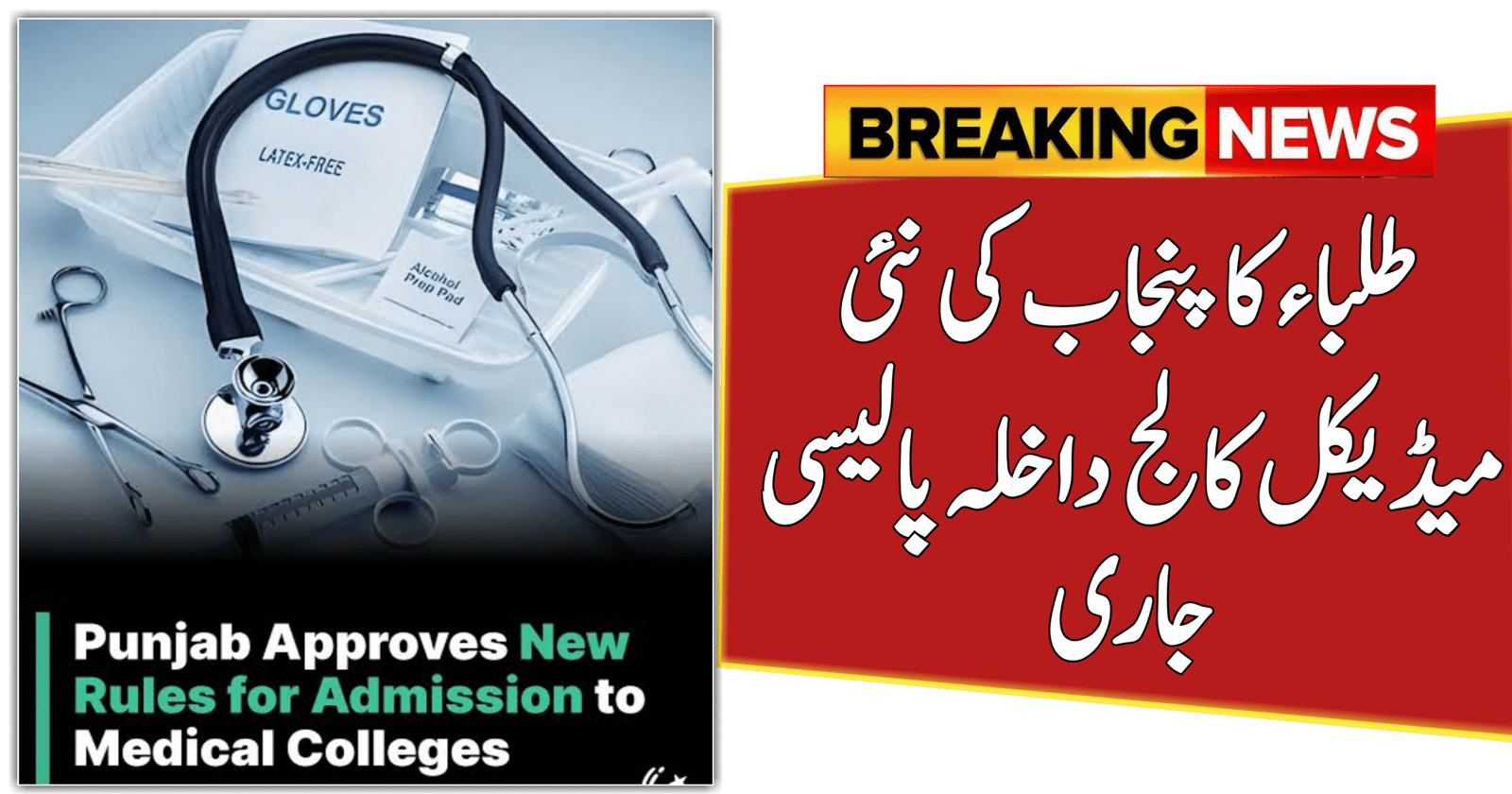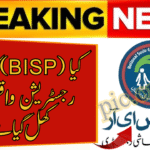The Punjab government’s New Medical College Admission Policy 2025 has become the center of a heated debate among students across the province. The move, allowing candidates from 2023 and 2024 to reuse their old MDCAT scores, has sparked outrage among current aspirants. Many students have called the decision a “severe injustice” that damages the merit-based system and disadvantages fresh candidates appearing in MDCAT 2025. According to the Pakistan Medical and Dental Council (PMDC), the revised policy aims to provide equal opportunity to all candidates. However, for thousands of 2025 aspirants, this announcement feels like a betrayal of fairness and hard work.
Read More: pave.gov.pk Online Apply
Table of Contents
Students Protest “Unfair Admission Rules”
The 2025 MDCAT candidates held protests in Lahore, Faisalabad, and Multan, urging the Punjab government and PMDC to withdraw the controversial rule. During a press conference, representatives of the new batch stated that this policy clearly favors previous candidates and takes away the rights of those who spent months preparing for a tougher exam in 2025.
“No other professional university in Pakistan — not NUST, AKU, PU, or GCU — accepts old test results. So why are only medical students treated unfairly?” a student leader questioned.
They argued that if the goal is fairness, every academic year should have a fresh and equal competition, as is the international standard.
Read More: Punjab Home Loan Scheme

Comparison of MDCAT 2024 vs. 2025
| Year | Total Questions | High Scorers (190+ Marks) | Difficulty Level | Remarks |
| 2024 | 200 | 2,750 students | Moderate | Easier test, more high scores |
| 2025 | 180 | 817 students | Difficult | Harder test, fewer top marks |
Fear of “Backdoor Entry” & Admission Chaos
Aspirants have also termed the new rule a “backdoor entry” system for those who couldn’t secure admission in the last two years. They warn that the decision will flood the system with old candidates, creating seat chaos across public sector colleges.
“This policy will let already-admitted students apply again, just to upgrade colleges. It will waste time, delay admissions, and reduce chances for genuine new candidates,” another protester said. The situation could lead to unnecessary seat reshuffling and administrative burden on universities already struggling with limited resources.
Read More: Punjab STI Jobs
Possible Impact of the Policy
| Category | Potential Issue | Student Concern |
| Fairness | Older test scores accepted | Unfair to new aspirants |
| Merit | Difficulty level varies | Unequal competition |
| Admissions | Seat replacements | Delays & confusion |
| Public Trust | Policy inconsistency | Loss of credibility in PMDC |

Call for Policy Withdrawal
Students are now calling on Chief Minister Punjab Maryam Nawaz and the PMDC to reverse the policy immediately. They suggest following the example of Sindh, NUST, and AKU, where only current-year test scores are valid for admissions.
They believe that merit-based selection is the only way to maintain transparency in Pakistan’s medical education system. “We are not asking for favors, only for fairness,” said one student during the protest.
As the debate grows, education experts have also urged the government to hold consultations with student bodies before finalizing any new admission framework. Without proper revisions, they warn, this policy could erode trust in PMDC’s transparency and demotivate future doctors across Punjab.
Read More: Punjab Rozgar Scheme
Final Thoughts
The outcry over Punjab’s new medical admission policy reflects a deep concern for fairness and meritocracy among Pakistan’s youth. While the PMDC may have introduced the rule with good intentions, its implementation risks creating more problems than solutions.
If the government truly wishes to strengthen the education system, it must listen to student voices and ensure that every aspirant whether from 2023, 2024, or 2025 is judged by equal and just standards.
Related Posts












